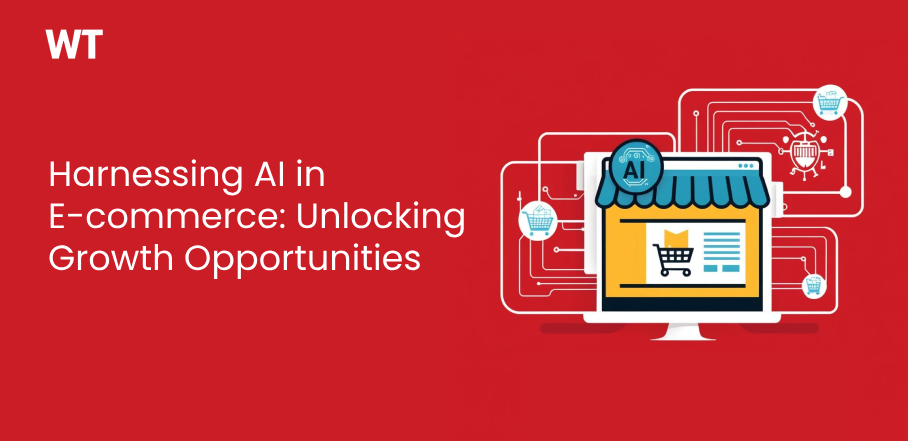
E-commerce can leverage AI capabilities in several ways to create new products and solutions that drive significant business growth opportunities. Detailed breakdown of some key areas where AI can be applied:
- Personalized Shopping Experience:
- AI algorithms can analyse customer data, such as past purchases, browsing behaviour, and demographic information, to offer personalized product recommendations.
- Chatbot powered by AI can provide real-time assistance to customers, helping them find products, answer questions, and complete purchases.
- Virtual shopping assistants can use natural language processing (NLP) to understand customer inquiries and provide relevant product suggestions, creating a more engaging shopping experience.
- Supply Chain Optimization:
- AI can optimize inventory management by predicting demand patterns and adjusting stock levels accordingly, reducing inventory costs and minimizing stock outs.
- Predictive analytics algorithms can anticipate potential supply chain disruptions, such as delays in shipping or manufacturing, allowing companies to take proactive measures to mitigate risks.
- Fraud Detection and Prevention:
- Machine learning algorithms can analyse transaction data to detect patterns indicative of fraudulent activity, such as unusual purchasing behaviour or suspicious payment transactions.
- AI-powered fraud detection systems can automatically flag suspicious activities in real-time, reducing the risk of financial losses due to fraudulent transactions.
- Visual Search and Image Recognition:
- E-commerce platforms can implement AI-based visual search capabilities that allow customers to upload images of products they like and find similar items in the inventory.
- Image recognition technology can enable automatic tagging and categorization of product images, improving search accuracy and enhancing the overall user experience.
- Dynamic Pricing:
- AI algorithms can analyse market dynamics, competitor pricing strategies, and customer behaviour to optimize pricing in real-time.
- Dynamic pricing solutions can adjust prices dynamically based on factors such as demand fluctuations, inventory levels, and seasonal trends, maximizing revenue and profitability.
- Customer Service Automation:
- AI-powered chatbot and virtual assistants can handle routine customer inquiries, such as order status updates, returns, and refunds, freeing up human agents to focus on more complex issues.
- Natural language understanding (NLU) algorithms enable chatbot to engage in conversational interactions with customers, providing personalized assistance and resolving queries efficiently.
- Enhanced Product Search and Discovery:
- AI algorithms can improve the relevance and accuracy of search results by understanding user intent and context.
- Natural language processing (NLP) techniques can enhance the understanding of search queries, enabling e-commerce platforms to deliver more precise product recommendations and search results.





